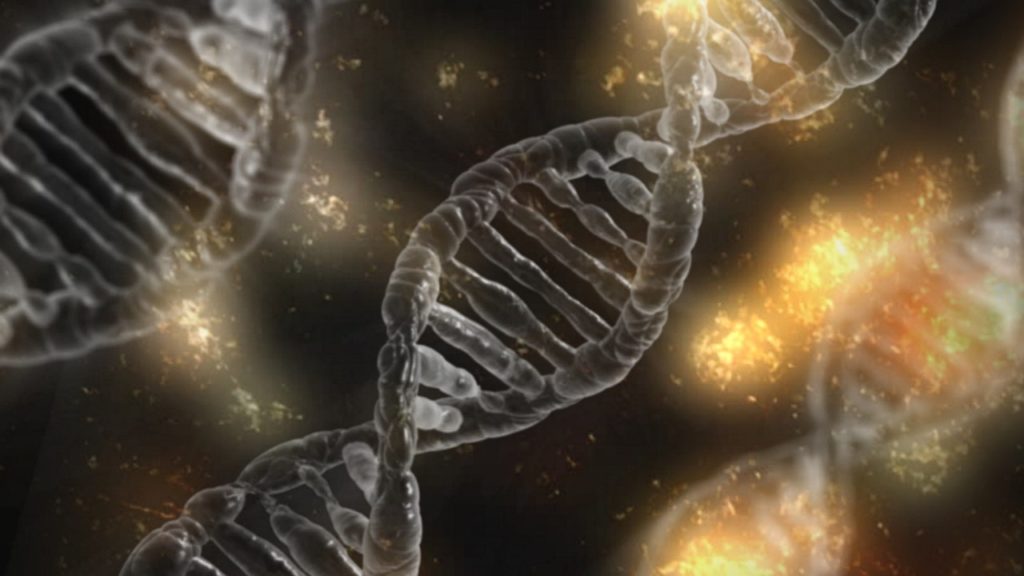
You probably already know that genes play an important role in your life. From physical characteristics to personality and behaviors, genetics are largely responsible for your individual traits. But did you know that genetics also play a significant role in alcoholism and addiction? That’s right, according to recent research, some people have been born with specific genetic variants, making them genetically predisposed to alcoholism.
What is Alcoholism?
Alcoholism, or Alcohol Use Disorder (AUD), is a “chronic relapsing brain disease characterized by an impaired ability to stop or control alcohol use despite adverse social, occupational, or health consequences,” defines the National Institute on Alcohol Abuse and Alcoholism [1].
According to a 2018 National Survey on Drug Use and Health (NSDUH), 14.4 million adults (18 and older) suffer from alcohol use disorder in the United States, while approximately 90,000 people die from alcohol-related causes in the U.S. every year. This ranks alcohol as the third leading preventable cause of death in the United States [2].
To be diagnosed with alcoholism or AUD, an individual has to meet any two of the following criteria (provided by the Diagnostic and Statistical Manual of Mental Disorders) within a single 12-month period [3]:
- Using alcohol in higher amounts or for a longer time than originally intended.
- Being unable to cut down on alcohol use despite a desire to do so.
Spending a lot of time obtaining, using, and recovering from the effects of alcohol.
- Cravings, or a strong desire to use alcohol.
- Being unable to fulfill major obligations at home, work, or school because of alcohol use.
- Continuing to abuse alcohol despite negative interpersonal or social problems that are likely due to alcohol use.
- Giving up previously enjoyed social, occupational, or recreational activities because of alcohol use.
- Using alcohol in physically dangerous situations (such as driving or operating machinery).
- Continuing to abuse alcohol despite the presence of a psychological or physical problem that is probably due to alcohol use.
- Having a tolerance (i.e. needing to drink increasingly large or more frequent amounts of alcohol to achieve the desired effect).
- Developing symptoms of withdrawal when efforts are made to stop using alcohol.
Genetics and Their Relationship with Alcoholism
 We know that alcoholism is a serious brain disease that affects millions of people globally and is one of the leading preventable causes of death. But just how does someone develop alcoholism, and why do some people suffer from it while others do not? In other words, are certain people more genetically predisposed to develop alcoholism than others?
We know that alcoholism is a serious brain disease that affects millions of people globally and is one of the leading preventable causes of death. But just how does someone develop alcoholism, and why do some people suffer from it while others do not? In other words, are certain people more genetically predisposed to develop alcoholism than others?
Research shows that genetics do, indeed, play a major role in the development of alcoholism, with genetics being up to 50 percent responsible for the development of an alcohol use disorder [4].
But while studies have long noted the important role genetics play in the risk for alcoholism, the specific genetic variants linked to alcoholism have largely been unknown. That is, until earlier this year.
Research conducted at Yale University School of Medicine and published by the Nature Neuroscience journal in May 2020, reveals that there are at least 29 genetic variants linked to problematic alcohol use [5]. The study analyzed 435,000 people, looking specifically for shared genetic variants among participants who suffered from problematic alcohol use.
While their research confirmed ten previously-recognized genetic risk factors for alcoholism, they uncovered 19 formerly unknown genetic risk factors linked to a predisposition to alcoholism. In addition to uncovering 19 new genetic variants linked to alcoholism, the researchers were able to dive deeper into the genetic links between disorders like anxiety and depression and alcoholism.
“This gives us ways to understand causal relations between problematic alcohol use traits such as psychiatric states, risk-taking behavior, and cognitive performance,” states Hang Zhou, lead author of the study [6].
Joel Gelernter, Professor of Genetics and of Neuroscience at the Yale School of Medicine and senior author of the study, states: “With these results, we are also in a better position to evaluate individual-level risk for problematic alcohol use” [7].
In other words, these findings not only confirm the connection between genetics and alcoholism but, by uncovering the specific genetic variants linked to alcoholism, medical professionals will now be better able to evaluate and predict high-risk individuals, thus paving the way for greater prevention and treatment of alcoholism.
References:
[1] U.S. Department of Health and Human Services. (2020, February 18). Alcohol Facts and Statistics. National Institute on Alcohol Abuse and Alcoholism. https://www.niaaa.nih.gov/publications/brochures-and-fact-sheets/alcohol-facts-and-statistics.
[2] ibid.
[3] What is Alcoholism? Find Alcohol Addiction Treatment. Alcohol.org. https://www.alcohol.org/alcoholism/.
[4] Alcohol Addiction And Genetics - Is Alcoholism Genetic? Vertava Health. (2020, August 7). https://vertavahealth.com/alcohol/is-alcoholism-genetic/.
[5] ScienceDaily. (2020, May 25). Problems with alcohol? 29 gene variants may explain why. ScienceDaily. https://www.sciencedaily.com/releases/2020/05/200525115653.htm.
[6] ibid.
[7] ibid.
About the Author:
 Sarah Musick is a freelance writer who specializes in eating disorder awareness and education. After battling with a 4-years long eating disorder, she made it her mission to help others find hope and healing in recovery.
Sarah Musick is a freelance writer who specializes in eating disorder awareness and education. After battling with a 4-years long eating disorder, she made it her mission to help others find hope and healing in recovery.
Her work has been featured on numerous eating disorder blogs and websites. When she’s not writing, Sarah is off traveling the world with her husband.
The opinions and views of our guest contributors are shared to provide a broad perspective of addictions. These are not necessarily the views of Addiction Hope, but an effort to offer a discussion of various issues by different concerned individuals.
We at Addiction Hope understand that addictions result from multiple physical, emotional, environmental, and genetic factors. If you or a loved one are suffering from an addiction, please know that there is hope for you, and seek immediate professional help.
Published on September 30, 2020
Reviewed by Jacquelyn Ekern, MS, LPC on September 30, 2020
Published on AddictionHope.com
